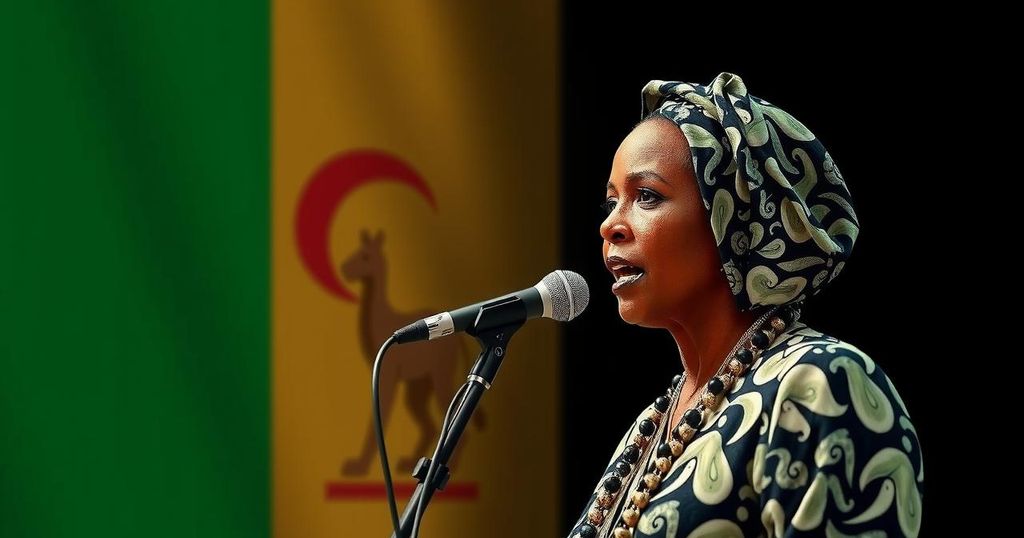Namibia’s Historic Presidential Election: A Chance for Female Leadership

Namibia is witnessing a presidential election where Netumbo Nandi-Ndaitwah, a notable figure from the independence movement, stands as a strong candidate for the presidency, aiming to become the country’s first female leader. The election highlights public dissatisfaction with economic conditions and high youth unemployment, set against the backdrop of significant electoral changes in the region. Voter participation is expected to influence the future political landscape of Namibia.
In Namibia, the presidential election sees a significant milestone with 72-year-old Netumbo Nandi-Ndaitwah, the vice president and the SWAPO party candidate, poised to become the country’s first female leader. She has a strong legacy, having participated in the independence movement during the 1970s. However, SWAPO, which has been in power since independence in 1990, is grappling with public dissatisfaction stemming from high unemployment rates, particularly among youth. Voter registration numbers indicate that approximately half the population is eligible to participate in this crucial election, which could also determine the future composition of Parliament.
As the election unfolds, Nandi-Ndaitwah’s proposals to create jobs and improve economic conditions are at the forefront of her campaign. She has committed to spending around 85 billion Namibian dollars to generate over 500,000 jobs within five years, despite criticisms of this goal’s feasibility. Besides economic issues, women’s rights, including reproductive health and equal pay, are anticipated to resonate strongly with voters. Namibia’s history, marked by a struggle against colonialism and segregation, adds significant weight to the ongoing electoral contest.
The backdrop of the elections is notable, considering the shifting political dynamics in the region, where established parties in countries like South Africa and Botswana have lost ground to opposition movements recently, raising the stakes for SWAPO. The election mechanics also allow for a runoff if no candidate achieves a majority, a situation that has not occurred in previous Namibian elections. The passing of President Hage Geingob and the subsequent transition of power to Nangolo Mbumba adds further complexity to the election’s outcome.
With 14 candidates, including past challenger Panduleni Itula, competing for the presidency, Namibia stands at a crossroads that could redefine its political landscape. The outcome is anticipated with great interest, especially regarding opportunities for enhanced female leadership and socioeconomic reforms.
Namibia’s political landscape has historically been dominated by the SWAPO party, which has maintained control since the country’s independence in 1990. The nation faces challenges such as high unemployment rates, particularly among the youth, which have fueled discontent among voters. The current election presents a pivotal moment as Netumbo Nandi-Ndaitwah seeks to make history as Namibia’s first female leader, representing a broader movement for change in the region as established parties face significant electoral challenges elsewhere in Africa. The electoral process includes provisions for a runoff, underscoring the competitive nature of this election and the potential for shifting political power.
The Namibian presidential election represents a critical juncture in the country’s political history, with the candidacy of Netumbo Nandi-Ndaitwah symbolizing a potential breakthrough for female leadership in a nation historically governed by men. Voter dissatisfaction with economic conditions may produce a significant electoral shift, reflecting broader regional trends. As the nation prepares to cast their votes, the implications of this election extend beyond its borders, indicating a possible new era in African politics.
Original Source: abcnews.go.com








